Find Help
More Items From Ergsy search
-
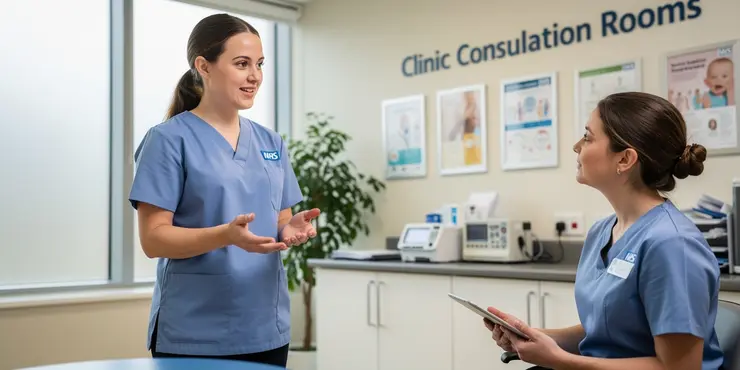
Turner syndrome: Beyond the classic XO phenotype
Relevance: 100%
-
Bronchiolitis and chest infections in young children - Prof Steve Turner
Relevance: 20%
-

What is Cushing's syndrome?
Relevance: 19%
-

Munchausen's syndrome | NHS
Relevance: 19%
-

Prader-Willi Syndrome | NHS
Relevance: 19%
-
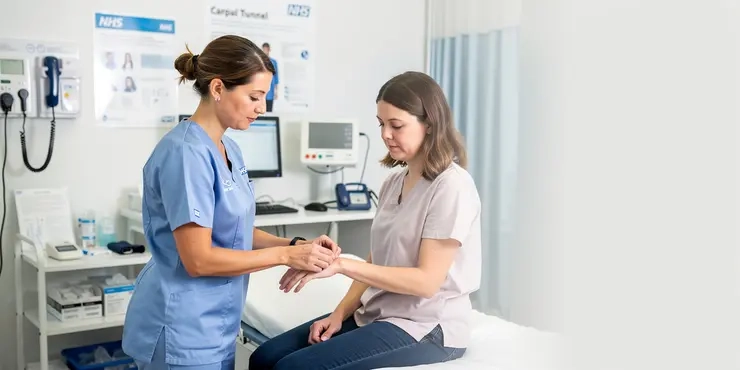
Carpal Tunnel Syndrome
Relevance: 18%
-

Is chronic fatigue syndrome contagious?
Relevance: 18%
-

Having a child with Down's syndrome | NHS
Relevance: 18%
-

Down's syndrome: Emily's story | NHS
Relevance: 18%
-
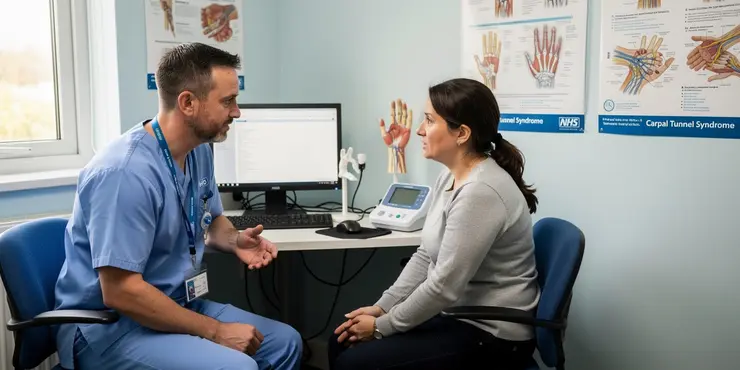
What causes Carpal Tunnel Syndrome?
Relevance: 17%
-

Charles Bonnet Syndrome
Relevance: 17%
-

What causes chronic fatigue syndrome?
Relevance: 17%
-
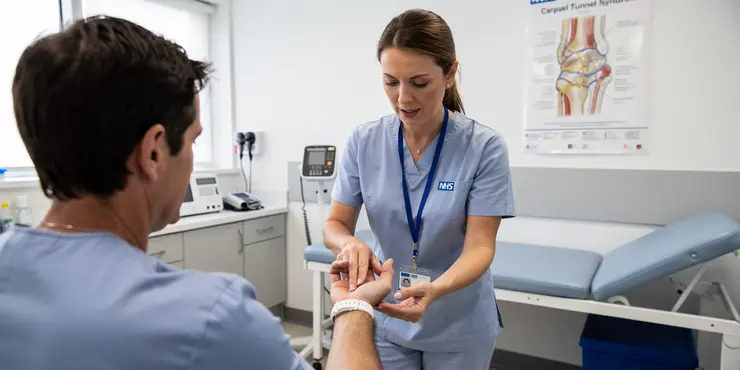
Is Carpal Tunnel Syndrome covered by the NHS?
Relevance: 17%
-
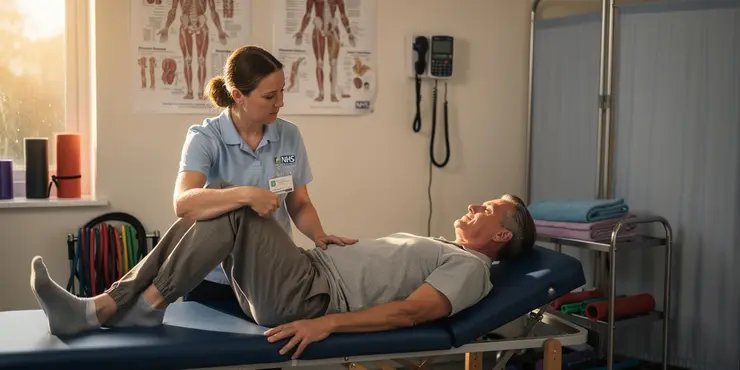
Exercises for sciatica: piriformis syndrome | NHS
Relevance: 17%
-
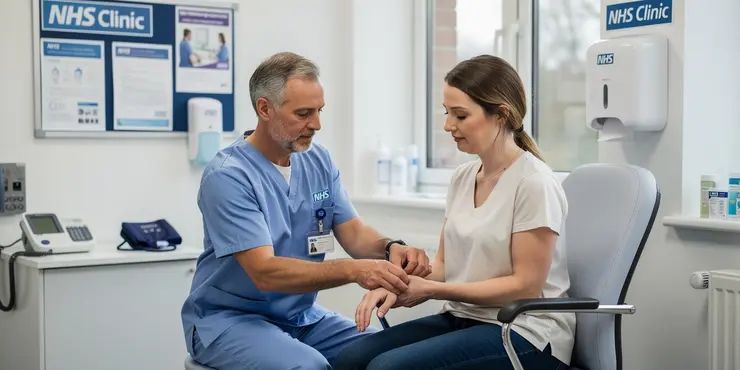
How is Carpal Tunnel Syndrome diagnosed?
Relevance: 17%
-

What is complex sleep apnea syndrome?
Relevance: 17%
-
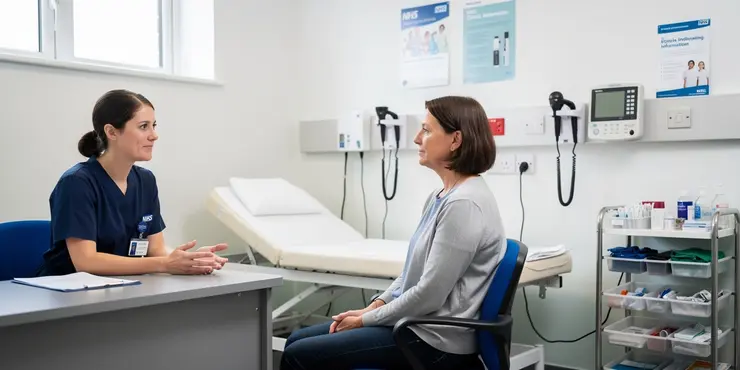
What is complex sleep apnea syndrome?
Relevance: 17%
-
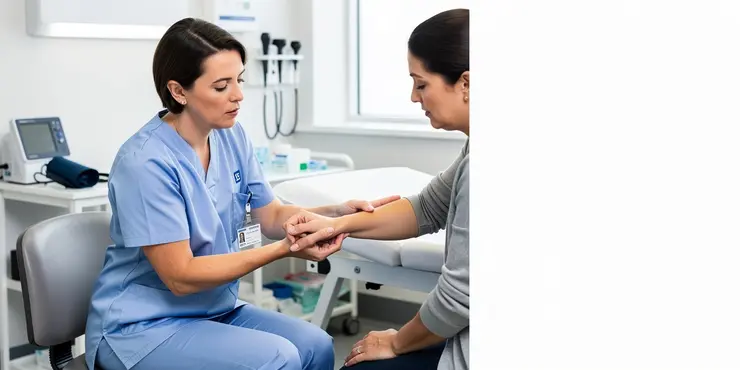
What is Carpal Tunnel Syndrome (CTS)?
Relevance: 17%
-
What is chronic fatigue syndrome?
Relevance: 17%
-
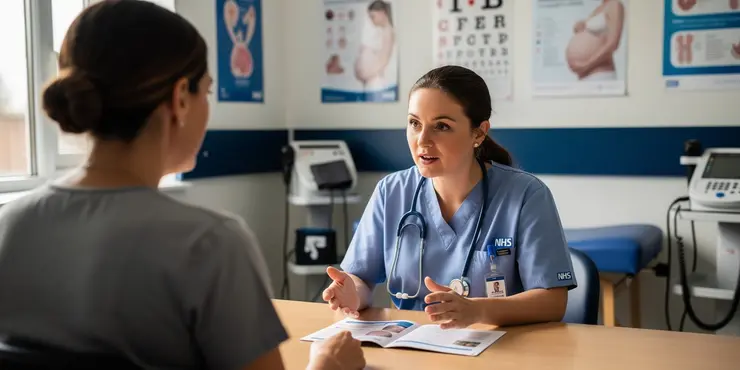
What is congenital rubella syndrome?
Relevance: 17%
-
How can I prevent Carpal Tunnel Syndrome?
Relevance: 16%
-

Having a child with Edwards' syndrome (trisomy 18) | NHS
Relevance: 16%
-

What is the difference between autism and Asperger's syndrome?
Relevance: 16%
-
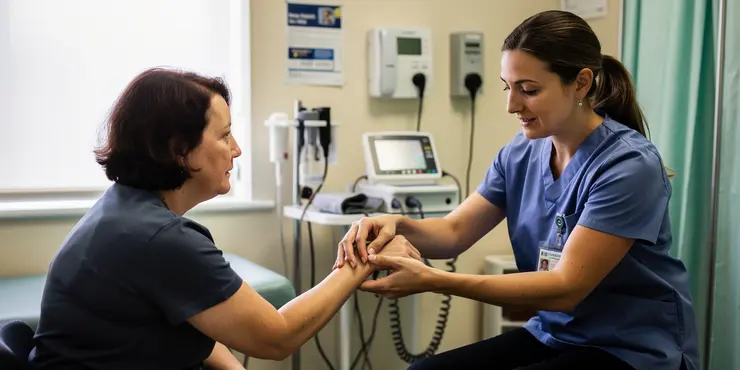
Are there any alternative treatments for Carpal Tunnel Syndrome?
Relevance: 16%
-
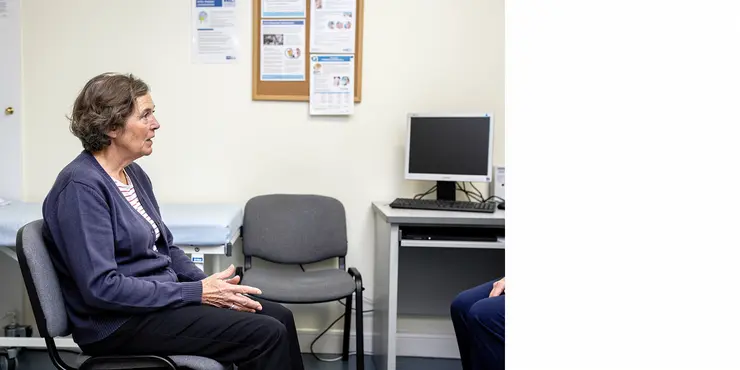
Are there psychological aspects to chronic fatigue syndrome?
Relevance: 16%
-
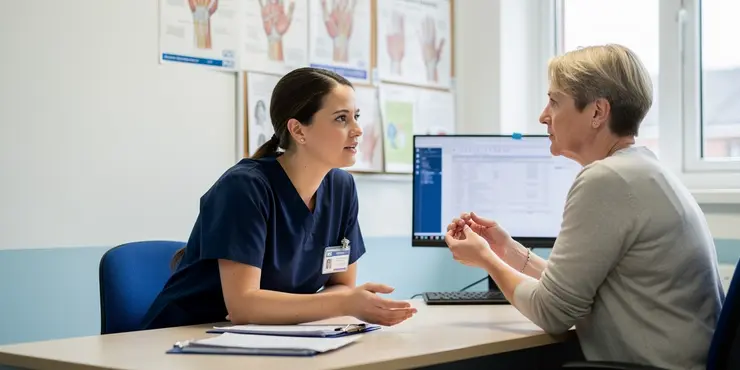
Can Carpal Tunnel Syndrome recur after treatment?
Relevance: 16%
-
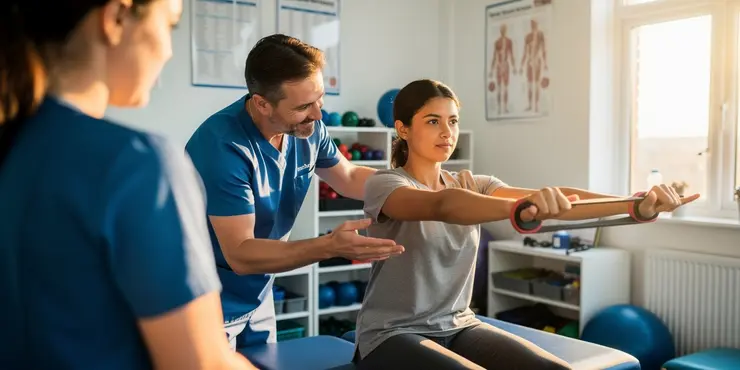
Greater trochanteric pain syndrome
Relevance: 16%
-
Is chronic fatigue syndrome a mental illness?
Relevance: 16%
-
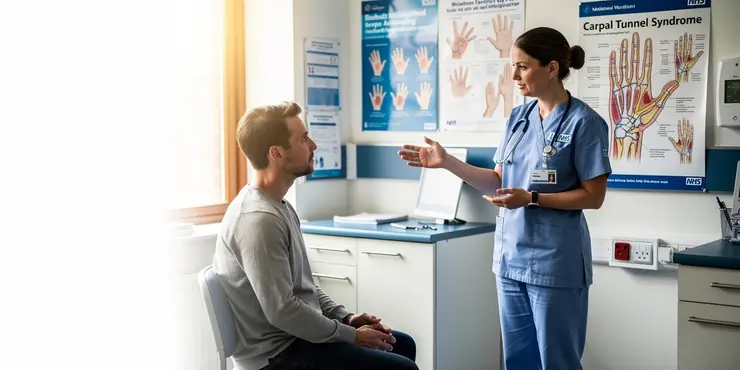
When should I consider surgery for Carpal Tunnel Syndrome?
Relevance: 15%
-
Can baby sleep pillows prevent flat head syndrome?
Relevance: 15%
-
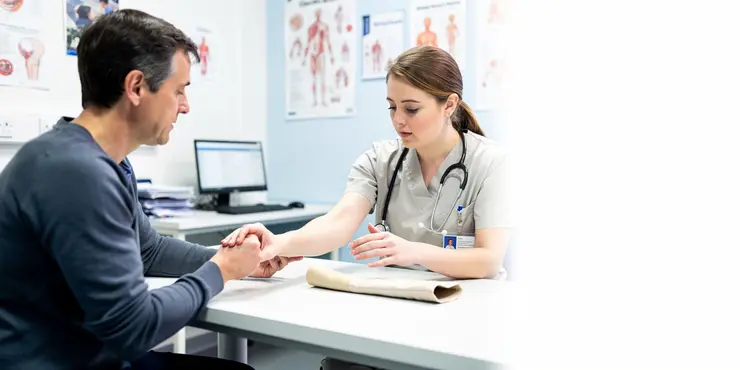
What non-surgical treatments are available for Carpal Tunnel Syndrome?
Relevance: 15%
-
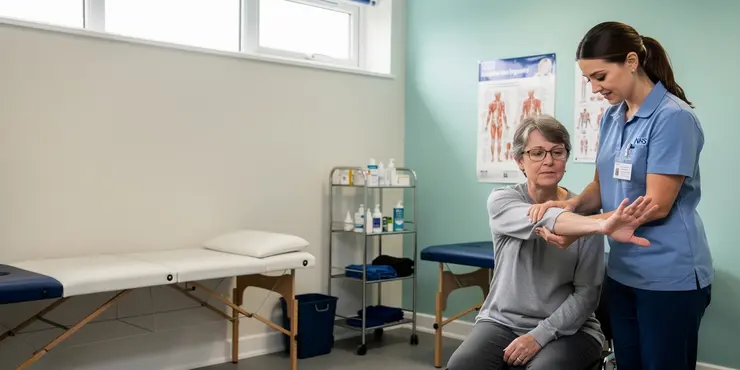
Are there specific exercises that can help with Carpal Tunnel Syndrome?
Relevance: 15%
-

Who is at risk of developing chronic fatigue syndrome?
Relevance: 15%
-
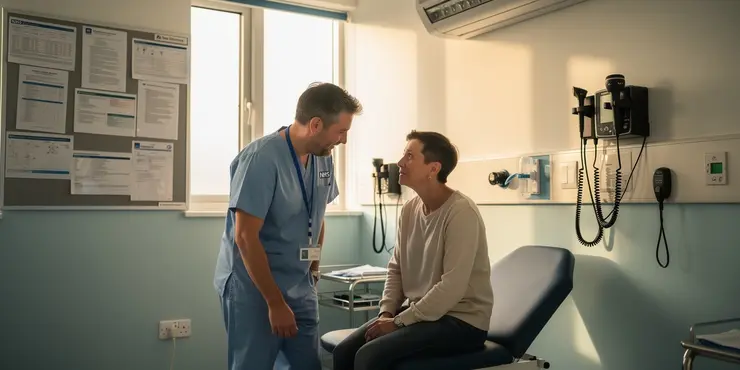
What role do infections play in chronic fatigue syndrome?
Relevance: 15%
-
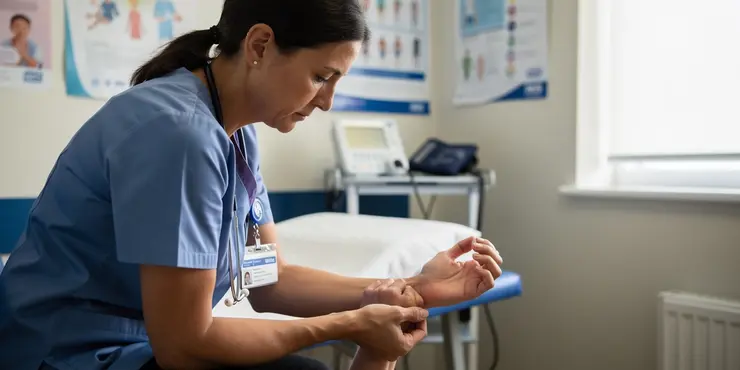
What are the common symptoms of Carpal Tunnel Syndrome?
Relevance: 15%
-
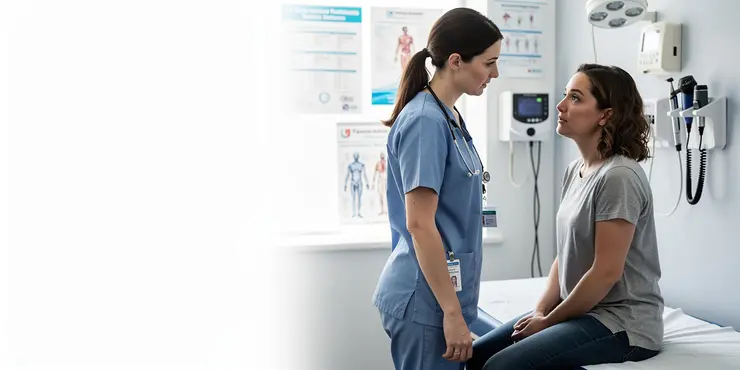
What is irritable bowel syndrome (IBS)?
Relevance: 15%
-
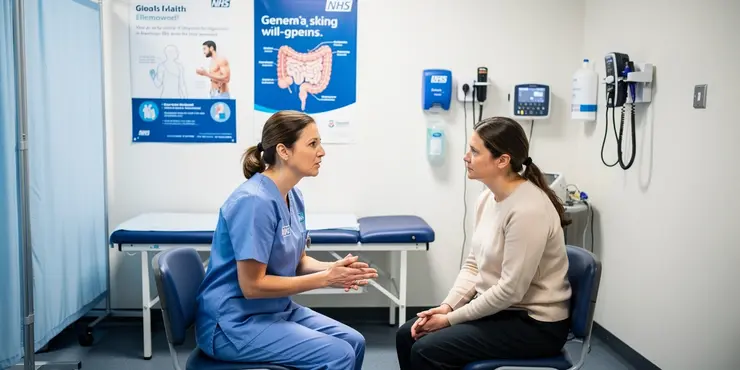
Symptoms of irritable bowel syndrome (IBS)
Relevance: 15%
-
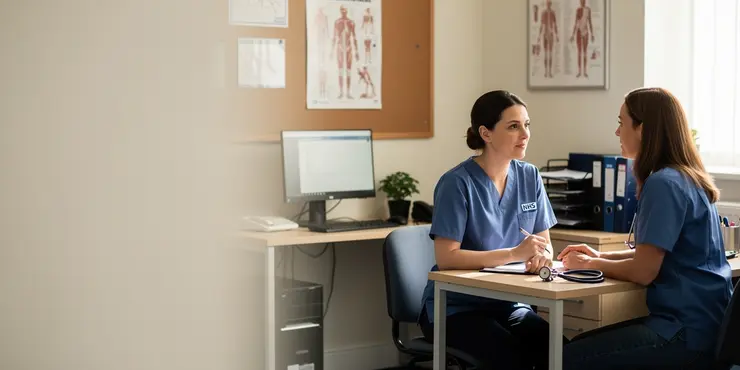
About irritable bowel syndrome (IBS)
Relevance: 15%
-

Diagnosing irritable bowel syndrome (IBS)
Relevance: 15%
-
Can children develop chronic fatigue syndrome?
Relevance: 15%
Turner Syndrome: Beyond the Classic XO Phenotype
Introduction to Turner Syndrome
Turner Syndrome is a chromosomal disorder affecting females, typically characterized by the presence of a single X chromosome (45, XO) rather than two sex chromosomes. However, the condition encompasses a spectrum of phenotypes beyond this classic presentation. Understanding these variations is crucial for managing patients comprehensively.
Variants of Turner Syndrome
While the classic XO karyotype is common, other chromosomal patterns can occur, such as 45,X/46,XX mosaicism, where some cells have two X chromosomes, and others have one. Additionally, some individuals may have structural abnormalities in one of the X chromosomes, which can also lead to Turner syndrome.
Physical Features and Symptoms
Turner Syndrome presents with a variety of physical features, which can include short stature, a webbed neck, and low-set ears. Heart defects, kidney problems, and infertility are also common. The severity and combination of symptoms differ widely among affected individuals.
Diagnosis and Genetic Testing in the UK
Diagnosing Turner Syndrome involves a combination of clinical evaluation and genetic testing. In the UK, the National Health Service (NHS) provides resources and support for genetic testing and counseling. Early diagnosis through prenatal testing or at birth can lead to timely interventions for associated health issues.
Management and Treatment
Treatment for Turner Syndrome is tailored to individual needs, focusing on managing associated conditions. Growth hormone therapy can help increase height, while hormone replacement therapy can induce secondary sexual development. Regular health check-ups are essential to monitor and treat heart, kidney, and other issues that may arise.
Support and Resources in the UK
Various support networks and organizations, such as the Turner Syndrome Support Society UK, offer resources, information, and community support for those affected by Turner syndrome. These organizations play an essential role in improving the quality of life for individuals with this condition and their families.
Conclusion
Turner Syndrome is a complex condition with a spectrum of variations and symptoms. Beyond the classic XO phenotype, understanding the diverse presentations of Turner syndrome is crucial for effective diagnosis and treatment. In the UK, numerous resources are available to support those affected by this condition, ensuring comprehensive care and management.
Turner Syndrome: Beyond the Classic XO Phenotype
What is Turner Syndrome?
Turner Syndrome is a condition that affects girls. It happens when a girl has one X chromosome instead of two. But sometimes, it can look different in each person. It is important to know about these differences to help those with Turner Syndrome in the best way.
Different Types of Turner Syndrome
The usual form of Turner Syndrome is with one X chromosome. But sometimes, girls have a mix of cells, some with one X and some with two Xs. This is called mosaicism. Other times, the X chromosome might be different or broken. These can all cause Turner Syndrome.
Signs and Symptoms
Girls with Turner Syndrome might be shorter than others. They might have a neck that looks a bit different and ears that are lower. They can also have problems with their heart, kidneys, and may not be able to have children. These signs can be different in every girl.
How is it Diagnosed in the UK?
To find out if a girl has Turner Syndrome, doctors will look at her health and do genetic tests. In the UK, the NHS helps with these tests and gives support. Finding out early, even before a baby is born, helps in giving the right care early on.
Treatment and Care
Doctors give treatments based on what each girl needs. Some girls get growth hormone to help them grow taller. Others might need hormones to help them grow into women. Regular check-ups are important to keep an eye on the heart, kidneys, and other health issues.
Help and Support in the UK
There are groups like the Turner Syndrome Support Society UK. They give information and help to girls with Turner Syndrome and their families. These groups are important for making life better for these families.
Summary
Turner Syndrome is a condition that can look different in each girl. It is important to understand these differences to help girls with the condition. The UK has many ways to help and support families, so they get the best care.
Frequently Asked Questions
What is Turner syndrome?
Turner syndrome is a genetic condition affecting females, where one of the X chromosomes is partially or completely missing.
What are the symptoms of Turner syndrome?
Symptoms of Turner syndrome can include short stature, infertility, heart defects, and certain learning disabilities. Individuals may also have distinct physical features such as a webbed neck or low-set ears.
How is Turner syndrome diagnosed?
Turner syndrome is typically diagnosed through genetic testing, which can identify the missing or altered X chromosome. This can be done prenatally or after birth.
Can Turner syndrome be cured?
There is no cure for Turner syndrome, but many symptoms can be managed with appropriate treatments such as growth hormone therapy, estrogen replacement therapy, and medical monitoring for heart and kidney issues.
How common is Turner syndrome in the UK?
Turner syndrome affects approximately 1 in 2,000 to 1 in 2,500 female births in the United Kingdom.
What causes Turner syndrome?
Turner syndrome is caused by the complete or partial absence of one of the X chromosomes in females. The exact cause of this chromosomal abnormality is not well understood.
Are there different types of Turner syndrome?
Yes, Turner syndrome can present in various forms, including classic Turner syndrome (complete absence of an X chromosome) and mosaic Turner syndrome (some cells have two X chromosomes and some have only one).
What is the life expectancy of someone with Turner syndrome?
With proper medical care, individuals with Turner syndrome can have a normal life expectancy. However, they may need ongoing monitoring for associated health issues.
Can women with Turner syndrome have children?
Most women with Turner syndrome are infertile, but some may be able to conceive with fertility treatments and assisted reproductive technologies.
What kind of medical specialists should individuals with Turner syndrome see?
Individuals with Turner syndrome should have a multidisciplinary team, including an endocrinologist, cardiologist, nephrologist, and a fertility specialist, to manage the various aspects of their condition.
Is there support available for families of individuals with Turner syndrome in the UK?
Yes, there are several support groups and organizations in the UK, such as the Turner Syndrome Support Society, that provide resources and support for families affected by Turner syndrome.
Are learning difficulties common in Turner syndrome?
Some individuals with Turner syndrome may experience learning difficulties, particularly in areas such as mathematics and spatial reasoning. However, many have normal intelligence and can thrive academically with the appropriate support.
What are the common heart defects associated with Turner syndrome?
Common heart defects in Turner syndrome include bicuspid aortic valve, coarctation of the aorta, and other congenital heart anomalies. Regular cardiac evaluation is important for individuals with Turner syndrome.
How does growth hormone therapy help in Turner syndrome?
Growth hormone therapy can help increase height in individuals with Turner syndrome, who often experience growth failure or short stature. It is most effective when started early in childhood.
Are there any lifestyle changes recommended for individuals with Turner syndrome?
Healthy lifestyle choices, including a balanced diet, regular exercise, and avoiding smoking, are recommended. Ongoing medical monitoring for associated health conditions is also important.
What is Turner syndrome?
Turner syndrome is a condition that only affects girls. It happens when a girl is born with one X chromosome instead of two. This can cause some health and development problems.
Some girls with Turner syndrome are shorter than other girls. They might also have trouble with learning or hearing.
If you want to learn more or need help, you can:
- Talk to a doctor.
- Ask an adult you trust for help.
- Use picture books or videos to understand better.
Turner syndrome is a genetic condition that happens in girls. It means one of their X chromosomes is partly or fully missing.
What signs show Turner syndrome?
Turner syndrome can make people a bit shorter. It might be hard for them to have babies. Some people have heart problems. Learning can be a bit tricky too. There might be some special physical features like a neck that looks wider or ears that sit lower on the head.
If you know someone with Turner syndrome, being patient and kind can help. Using pictures and clear words can make learning easier for them.
How do doctors know if someone has Turner syndrome?
Doctors can find Turner syndrome with a special test that looks at genes. This test can see if a piece of the X chromosome is missing or changed. They can do this test before a baby is born or after the baby is born.
Can we fix Turner syndrome?
Turner syndrome is something that lasts a lifetime.
Doctors can't make it go away, but they can help.
They give medicine to help people grow and feel better.
Talking to a doctor is important.
They can give some ideas to help make life easier.
Joining support groups or talking with people who have Turner syndrome can also help.
There is no way to make Turner syndrome go away, but doctors can help with the symptoms. They can use special treatments like growth hormone to help you grow. They can also give estrogen to help you feel better. Doctors will check your heart and kidneys to make sure they are healthy.
How many people have Turner syndrome in the UK?
Turner syndrome is not very common. It happens to about 1 in every 2,500 girls.
A helpful tool is to use pictures or simple charts to understand more about Turner syndrome.
Turner syndrome is something that affects girls. It happens in about 1 out of every 2,000 to 2,500 girls born in the UK.
What makes Turner syndrome happen?
Turner syndrome is a condition that girls can be born with. It happens because of a change in the chromosomes, which are tiny parts inside the cells of the body that carry genetic information. Girls with Turner syndrome usually have one X chromosome missing or changed.
If you want to learn more, you can ask a doctor or look for videos that explain it simply. Talking to someone who knows about Turner syndrome can also help you understand it better.
Turner syndrome happens when a girl is missing all or part of one of her X chromosomes. Scientists don't know exactly why this happens.
Are there different kinds of Turner syndrome?
Yes, Turner syndrome comes in different forms. It affects people in different ways.
Here are some helpful ways to learn about Turner syndrome:
- Look at pictures or diagrams to understand more.
- Watch videos that explain it in simple terms.
- Ask a doctor or nurse to explain it clearly.
Yes, Turner syndrome is a condition that can show up in different ways. There is classic Turner syndrome, where one X chromosome is missing. There is also mosaic Turner syndrome, where some cells have two X chromosomes and other cells have just one.
How long do people live with Turner syndrome?
People with Turner syndrome can live a long life, but they might have some health problems. Doctors can help them stay healthy.
With the right medical help, people with Turner syndrome can live as long as anyone else. But they might need to see the doctor often to check on their health.
Can Women with Turner Syndrome Have Children?
Some women with Turner syndrome might find it hard to have children. Turner syndrome is a condition that affects some girls and women. It can make having babies more difficult.
Many women with Turner syndrome can use special treatments to help them have children. They can talk to a doctor to learn more about these treatments.
Supportive tools and techniques can help, such as:
- Talking to a doctor who knows a lot about Turner syndrome.
- Joining support groups to meet other women with Turner syndrome.
- Using pictures or simple words to understand more about Turner syndrome and having children.
Most women with Turner syndrome cannot have babies. But some might be able to with help from special doctors and medicine. These are called fertility treatments and assisted reproductive technologies.
What doctors should people with Turner syndrome visit?
People with Turner syndrome should see doctors who know about different parts of the body. Here are some doctors they might see:
- Endocrinologist: A doctor who helps with hormones and growth.
- Cardiologist: A heart doctor.
- Nephrologist: A doctor for kidney health.
- Ophthalmologist: An eye doctor.
- Otologist: An ear doctor.
- Obstetrician/Gynecologist: A doctor for women’s health.
Here are some tools that might help:
- Pictures: Looking at pictures can help you understand.
- Videos: Watching videos about Turner syndrome can help you learn more.
- Talking to someone: Ask a parent, teacher, or doctor if you have questions.
If someone has Turner syndrome, they need a team of doctors to help them. This team should have:
- A hormone doctor (endocrinologist)
- A heart doctor (cardiologist)
- A kidney doctor (nephrologist)
- A baby doctor (fertility specialist)
This team will help take care of different parts of their health.
Using clear pictures or charts can help explain what each doctor does. Apps that read text out loud can also be useful.
Can families in the UK get help if someone has Turner syndrome?
Yes, there is help for families in the UK if someone has Turner syndrome. You can talk to doctors who know about Turner syndrome. They can give you advice and support.
You can also join support groups. These groups have other families who understand what you are going through. They can share tips and help you feel better.
Using pictures and simple words can help understanding. You can also ask someone you trust to read things with you and explain.
Yes, there are groups in the UK that help families with Turner syndrome. One group is the Turner Syndrome Support Society. They give help and resources to families.
Do many people with Turner syndrome have learning problems?
Some people with Turner syndrome might find learning hard, especially with math and understanding space. But many have normal intelligence and can do well in school if they get the right help.
What Heart Problems Happen with Turner Syndrome?
Turner syndrome is a health condition. Some people with Turner syndrome have heart problems. Here are some common heart problems:
- Narrow heart valve: A valve in the heart is too small. Blood has trouble going through.
- Hearting opening: There is a hole between parts of the heart.
- Big blood vessel: The big blood tube might be too big.
It's good to visit a heart doctor to help with these heart problems.
Support tools:
- Talk to a doctor about any heart worries.
- Check with a heart expert (cardiologist).
- Have check-ups regularly to keep the heart healthy.
People with Turner syndrome can have problems with their heart. Some common heart problems are:
- A heart valve that has only two flaps instead of three (called bicuspid aortic valve).
- A part of the heart's main artery is too narrow (called coarctation of the aorta).
- Other heart problems present at birth.
It’s very important for people with Turner syndrome to have their heart checked often by a doctor.
Using pictures and easy words can help when learning about Turner syndrome. Ask a grown-up to explain any hard parts. You can also use tools like audiobooks or videos to help understand better.
How does growth hormone treatment help children with Turner syndrome?
Growth hormone treatment can help people with Turner syndrome grow taller. People with Turner syndrome often do not grow as expected and can be shorter than other people. The treatment works best if it starts when the person is a child.
What changes can help people with Turner syndrome feel better?
People with Turner syndrome can do some things to help them feel good. These are little changes they can make every day.
Here are some ideas:
- Eat healthy foods: Eating fruits, vegetables, and whole grains can help you stay strong and healthy.
- Be active: Playing outside, walking, or doing sports is good for your body and mind.
- Get enough rest: Try to have a regular bedtime and get plenty of sleep each night.
- See your doctor: It is important to visit the doctor often. They can help you stay healthy.
These small changes can make a big difference and help you feel better. You can also talk to a helper like a teacher or a family member if you need extra support.
To stay healthy, try to eat a mix of different foods, move your body with exercise, and do not smoke. Seeing the doctor regularly is also important to check on your health.
Useful Links
This website offers general information and is not a substitute for professional advice.
Always seek guidance from qualified professionals.
If you have any medical concerns or need urgent help, contact a healthcare professional or emergency services immediately.
Some of this content was generated with AI assistance. We’ve done our best to keep it accurate, helpful, and human-friendly.
- Ergsy carfully checks the information in the videos we provide here.
- Videos shown by Youtube after a video has completed, have NOT been reviewed by ERGSY.
- To view, click the arrow in centre of video.
- Most of the videos you find here will have subtitles and/or closed captions available.
- You may need to turn these on, and choose your preferred language.
- Go to the video you'd like to watch.
- If closed captions (CC) are available, settings will be visible on the bottom right of the video player.
- To turn on Captions, click settings .
- To turn off Captions, click settings again.
More Items From Ergsy search
-

Turner syndrome: Beyond the classic XO phenotype
Relevance: 100%
-
Bronchiolitis and chest infections in young children - Prof Steve Turner
Relevance: 20%
-

What is Cushing's syndrome?
Relevance: 19%
-

Munchausen's syndrome | NHS
Relevance: 19%
-

Prader-Willi Syndrome | NHS
Relevance: 19%
-

Carpal Tunnel Syndrome
Relevance: 18%
-

Is chronic fatigue syndrome contagious?
Relevance: 18%
-

Having a child with Down's syndrome | NHS
Relevance: 18%
-

Down's syndrome: Emily's story | NHS
Relevance: 18%
-

What causes Carpal Tunnel Syndrome?
Relevance: 17%
-

Charles Bonnet Syndrome
Relevance: 17%
-

What causes chronic fatigue syndrome?
Relevance: 17%
-

Is Carpal Tunnel Syndrome covered by the NHS?
Relevance: 17%
-

Exercises for sciatica: piriformis syndrome | NHS
Relevance: 17%
-

How is Carpal Tunnel Syndrome diagnosed?
Relevance: 17%
-

What is complex sleep apnea syndrome?
Relevance: 17%
-

What is complex sleep apnea syndrome?
Relevance: 17%
-

What is Carpal Tunnel Syndrome (CTS)?
Relevance: 17%
-
What is chronic fatigue syndrome?
Relevance: 17%
-

What is congenital rubella syndrome?
Relevance: 17%
-
How can I prevent Carpal Tunnel Syndrome?
Relevance: 16%
-

Having a child with Edwards' syndrome (trisomy 18) | NHS
Relevance: 16%
-

What is the difference between autism and Asperger's syndrome?
Relevance: 16%
-

Are there any alternative treatments for Carpal Tunnel Syndrome?
Relevance: 16%
-

Are there psychological aspects to chronic fatigue syndrome?
Relevance: 16%
-

Can Carpal Tunnel Syndrome recur after treatment?
Relevance: 16%
-

Greater trochanteric pain syndrome
Relevance: 16%
-
Is chronic fatigue syndrome a mental illness?
Relevance: 16%
-

When should I consider surgery for Carpal Tunnel Syndrome?
Relevance: 15%
-
Can baby sleep pillows prevent flat head syndrome?
Relevance: 15%
-

What non-surgical treatments are available for Carpal Tunnel Syndrome?
Relevance: 15%
-

Are there specific exercises that can help with Carpal Tunnel Syndrome?
Relevance: 15%
-

Who is at risk of developing chronic fatigue syndrome?
Relevance: 15%
-

What role do infections play in chronic fatigue syndrome?
Relevance: 15%
-

What are the common symptoms of Carpal Tunnel Syndrome?
Relevance: 15%
-

What is irritable bowel syndrome (IBS)?
Relevance: 15%
-

Symptoms of irritable bowel syndrome (IBS)
Relevance: 15%
-

About irritable bowel syndrome (IBS)
Relevance: 15%
-

Diagnosing irritable bowel syndrome (IBS)
Relevance: 15%
-
Can children develop chronic fatigue syndrome?
Relevance: 15%


